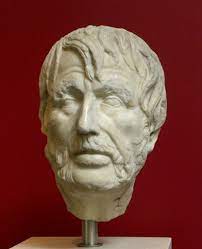Two weeks ago, I shared my insights, and those of the Stoics, on temperance. Continuing this impromptu series of columns on the four Stoic virtues, I will examine wisdom.
First, we must begin to disassociate wisdom from the accumulation of plain knowledge. As wisdom is the application of knowledge–call it practical knowledge; it is not knowing the most or simply being intelligent. The virtue of wisdom calls on us to take what we know and use it to improve our current situation. Sure, you can name every U.S. President, but how does that help you live a better and happier life? Okay, you read 100 self-help books, how are you applying these lessons? Wisdom forces you to reflect on your actions and assess if you are following your morals and virtues whatever they may be.
Hence, wisdom is not just intellect; rather, it is action. As Seneca, a Stoic philosopher, simply said, “Works not, words.”
Wisdom is encountering and using lessons from philosophy. In “Letters from a Stoic,” Seneca advised us that“…what we hear the philosophers saying and what we find in their writings should be applied in our pursuit of the happy life.”
Be on the hunt for “helpful pieces of teaching,” he said, and “the spirited and noble-minded sayings which are capable of immediate practical application—not far-fetched or archaic expressions or extravagant metaphors and figures of speech—and learn them so well that words become works.”
In essence, complexity is not brilliant. It is confusing and impractical for every day. Ancient philosophers wrote for the average person in a way, a concept most modern academics can not dream of. Start applying wisdom by hunting for lessons from philosophy that you can grasp, understand and apply at this moment.
Taking a step back, it becomes clear that the other virtues–courage, temperance and justice–that the Stoics embraced would be meaningless with wisdom. After all, the Stoics cared more about action than thoughts. Sure, you know what the right thing to do is, but do you do it?
Before we turn words into works, the Stoics direct us to involve wisdom to understand what is actually in our control. Epictetus, another Stoic philosopher, simply reminded us that “Some things are in our control and others not.” The first step on the path to living a life in accord with the virtue of wisdom is recognizing where you should place your worries.
Seneca remarked, “They lose the day in expectation of the night, and the night in fear of the dawn.” Why waste your precious time in this life worrying about events that you cannot affect? Are you worried about things you cannot change? Disregard fear of the future for it has yet to rear its ugly head at you, be alive in the present. It is wise to appreciate every moment that you are privileged to live in as not even our next breath is a guarantee. Death can come at any time, be wise and live with this in mind.
“What’s the good of dragging up sufferings which are over, of being unhappy now just because you were then,” said Seneca. Wisdom grounds us in the present.
Wisdom is also controlling one’s mind, especially one’s ego. Epictetus reminded us that “These are the signs of a wise man: to reprove nobody, to praise nobody, to blame nobody, nor even speak of himself or his own merits.”
Similarly, Epictetus also wrote, “The husbandman deals with land; physicians and trainers with the body; the wise man with his own Mind [emphasis added]”
Moreover, wisdom means understanding you are not the most wise person in the room. Epictetus said a man can’t learn “what he thinks he already knows.” Be humble and open to the lessons you can take away from every person you meet. Perhaps you have missed out on these opportunities to learn and grow because you were so arrogant that you could not be taught.
Can you turn these words into works? These lessons help us deal with people, but they rarely transcend into the metaphysical debates that so often plague contemporary philosophy. It is simple, practical advice. Wisdom is a virtue: it commands us to control our thoughts and apply the other virtues of temperance, justice and courage.
Seneca reminds us “It teaches us to do as well as to talk; to make our words and actions all of a color.”


